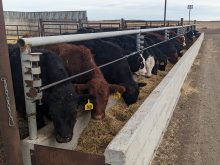The findings of the $90,000 study – concluding farmers received $265 million more a year with the wheat board’s help than if there wasn’t a monopoly on wheat sales – echoed the statements in a front-page story in the Producer on Feb. 28, 1991.
In that story, a market analyst emphasized that the wheat board needed to control exports of all prairie supplies to extract a premium from American buyers who wanted Canadian wheat.
“If farmers were competing against each other, that premium would disappear because the buyers could bid the price down,” said the analyst.
Read Also

Topsy-turvy precipitation this year challenges crop predictions
Rainfall can vary dramatically over a short distance. Precipitation maps can’t catch all the deviations, but they do provide a broad perspective.
What has happened in the five years since that story ran?
In 1991, the wheat board admitted it might have to sell grain at a loss because it was better to make a sale than to let grain sit in the bins.
Canadian farmers were faced with crippling drought, farm debts, the ill-effects of international trade subsidies and various frustrating agricultural policies.
In 1991, some farmers wanted an open border. However, the question of opening the border led to concerns over how to stop the flood of American grain northward.
In 1996, low world wheat stocks have wheat prices soaring to 15-year highs and Americans are protesting Canadian grain traveling southward.
The biggest change in five years is the attack on the Canadian Wheat Board: Some farmers have gone from describing the CWB as an irritant to fighting it as a crusade.
The farmers who raise the highest quality crops, live nearest the border or who have the most expertise in marketing their own grains believe they have the right to market to their best advantage – even if it could mean the end of the wheat board or their neighbors. They’re tired of rising costs and overdue bills. They want premiums and want them paid now.
Five years ago, the board knew the stakes and also knew the restless farmers. It knew that if farmers were unhappy when the board was helping them sail stormy seas, they would be even more restless when there was smoother sailing in the markets.
Five years too late the board is preparing its arsenal of factual defence.
Its option now is to listen to what farmers say must be changed, and involve them in creating feasible solutions to save the board and the farmers. The board shouldn’t take lightly the grumblings of farmers in the country and in the courts.
Each deserves more respect and dignity than they’re receiving.














